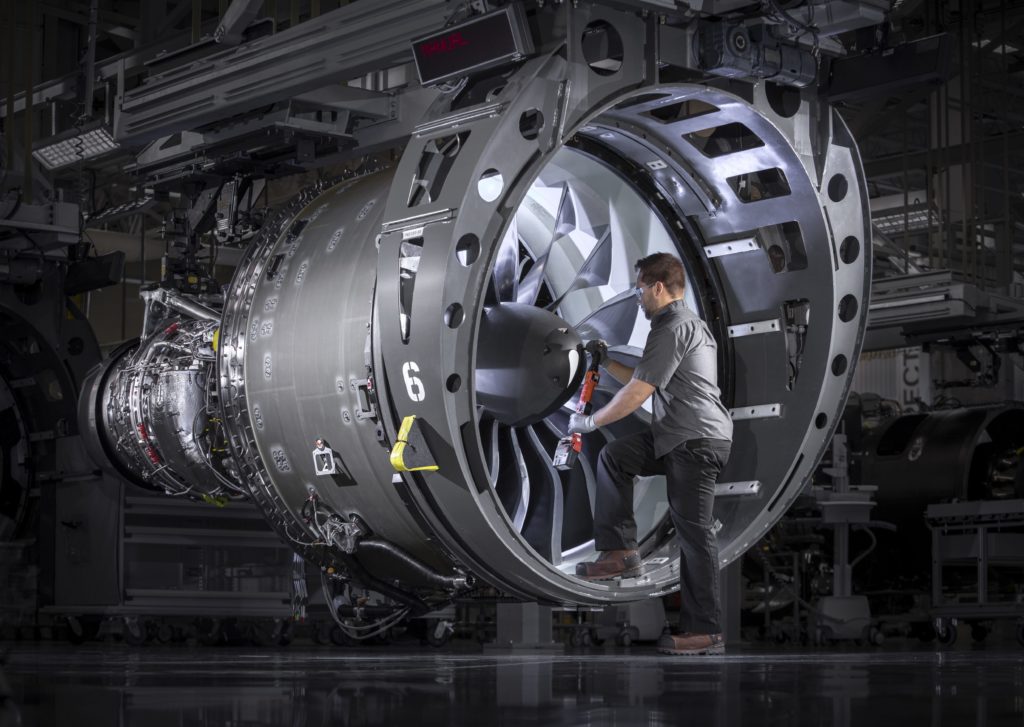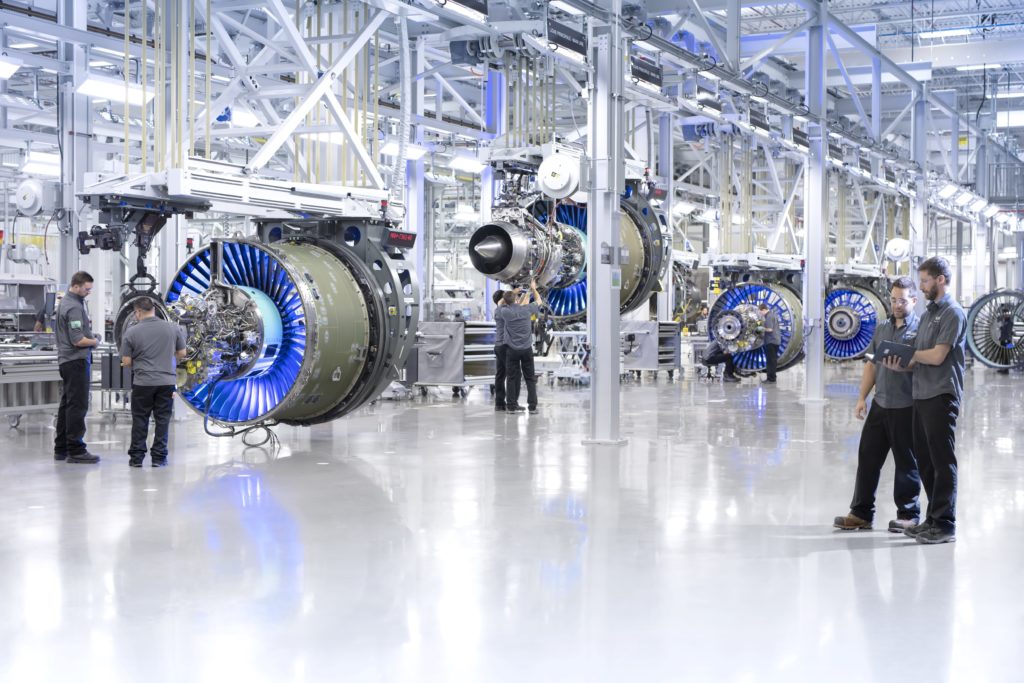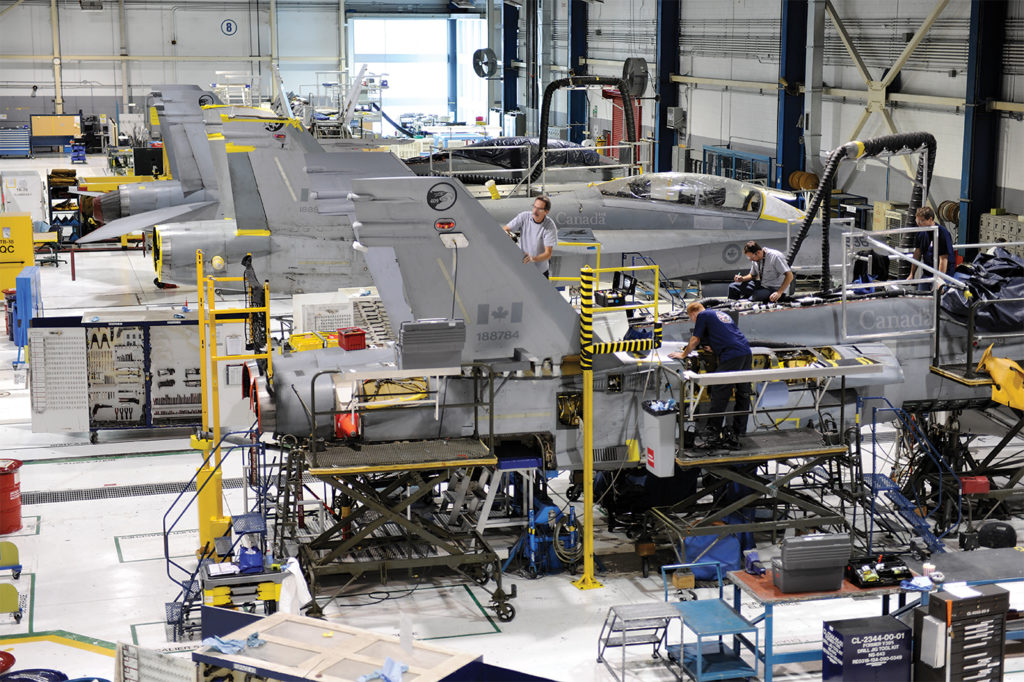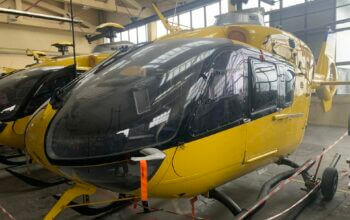Estimated reading time 9 minutes, 29 seconds.
A call for a paradigm shift might seem a contradictory strategy for a sector coming off a record-breaking year. But facing what it calls “unprecedented” circumstances caused by the coronavirus pandemic, Aero Montreal is advocating a pivot toward “non-traditional approaches” to support the economic recovery of the Quebec aerospace sector.

“We were saying we need to come out of this crisis with new ideas,” said Suzanne Benoit, president of the strategic think tank that represents over 200 companies.
2019 was a banner year for Quebec aerospace. Industry sales, which represent 57 per cent of the Canadian sector, totalled $17.8 billion, an increase of 15.9 per cent over the previous year. The workforce topped 43,400, a three per cent gain from 2018, and now affects one of every 50 jobs in metropolitan Montreal, according to the association.
“Before the pandemic, the industry was doing very well,” said Benoit, primarily producing components for the 34,000 new planes forecasters have predicted will enter the market between 2012 and 2031.
While many businesses were shuttered for a period after the Quebec government on March 23 closed all but essential services to deter community spread of the virus — a sudden decision that disrupted parts of the global aerospace supply chain — long production cycles mean most have weathered the initial shock reasonably well and “are still delivering parts,” she said. (Some were able to continue because of their roles in defence manufacturing and maintenance.)
But for a provincial cluster that exports 80 per cent of its production, recent layoff announcements at Montreal facilities of Airbus, Pratt & Whitney Canada and Heroux-Devtek foreshadow a looming crisis that could severely harm Quebec businesses as airlines slow or even cease aircraft orders.
“I’m anticipating major production slowdowns, in the 30- to 40-per cent range, and job losses, maybe something like 4,000 jobs,” Benoit recently told Post Media.

The question now, is “are we coming out of this crisis stronger or weaker as an ecosystem?” she said in interview with Skies.
“Now is the time to come up with ideas. [The provincial government and hopefully the federal government] have money to help us, but we don’t want to use that money to do what we were doing before. We want to improve, make things better, and maybe realign our sector in new segments of development.”
On May 25, Aero Montreal launched an Alliance for the Aerospace Recovery, a strategic committee comprised of member OEMs, Tier 1 manufacturers, small suppliers and government to identify local solutions to accelerate the recovery. The focus at present is on three lines of effort: consolidation and financing support, market development and defence opportunities, and innovation and the environment.
The alliance has the support of Pierre Fitzgibbon, minister of Economic Development, Innovation and Export Trade, who also announced a review of the province’s 10-year aerospace strategy, launched in 2016, to identify any necessary changes in light of the impact of COVID-19.
One of the objectives is to ensure other jurisdictions in Europe, the United States and Asia understand Quebec is open for business and has the support of government to lead sector innovation. The Montreal cluster is “very dependent” on the decision-making of parent company headquarters outside of Canada, noted Benoit, and many of them are currently reassessing their global operations, either in anticipation of reduced production or possible expansion.
“We are saying to [our] subsidiaries of global companies, Quebec is open for business. We have new innovation projects, so talk to your headquarters,” she said. “We want to position ourselves as an attractive jurisdiction for investment … This is a very important message, and our [provincial] government is pushing it … We need to be more visible.”
Through its MACH and other programs, Aero Montreal has been at the forefront of industry efforts to strengthen smaller suppliers, improving how they operate, how they adopt digital technologies and automation, and how they can maximize their innovations. It’s also been a leading proponent of industry efforts to “green” aircraft propulsion and other technologies and reduce the aerospace carbon footprint.
Supply chain development and digitization continue to expand. Both programs receive investment from the provincial government and are regarded as key to positioning the sector for future growth. If anything, the pandemic has illustrated that companies that have invested in automation are more able to adjust to social distancing requirements in the workplace and “are going through the crisis more easily,” said Benoit.
But the priority now is support for innovation and the development and adoption of disruptive technology, she said.

About 70 per cent of Canadian aerospace research and development is conducted in the Montreal area. And with Quebec promoting a green transportation agenda for trains, buses and cars, Aero Montreal wants to extend that to aerospace.
“Sustainable mobility is a priority in Quebec,” she said, noting the volume of research, led in part by Hydro Quebec, on power, hybrid propulsion and energy storage. “This is Quebec right now. Aerospace is part of this trend. And we want to work with the government on this.”
When the federal government launched its supercluster initiative with Budget 2017, Quebec aerospace offered a proposal called Mobility Systems and Technologies for the 21st Century innovation supercluster (MOST 21) that would have drawn together companies and academia working on new solutions for transport. The initiative was one of nine shortlisted, but ultimately AI-Powered Supply Chains Supercluster (Scale AI) was the only one selected in Quebec.
While artificial intelligence and new methods of advanced manufacturing and digital technology — an Ontario-based supercluster — are important to the aerospace sector, neither has a specific aerospace focus. And both replaced more targeted federal programs such as the Strategic Aerospace and Defence Initiative (SADI), launched in 2007 to support research and pre-competitive development, and the Technology Demonstration Program, created in 2013 to support collaborative research and early-stage, large-scale test and demonstration projects for next-generation technologies.
These programs helped level the playing field with Europe and the United States, said Benoit. Without improved federal government support and recognition that aerospace is a strategic industry, Quebec could lose some of that global investment, she said.
While an innovation paradigm shift may drive the longer-term effort of Aero Montreal, the immediate priority is helping companies steer through the gradual re-opening of the economy. Cash flow is a common problem for many smaller suppliers that are now adjusting to payment schedules of up to 120 rather than 60 days by OEMS and Tier 1s. Benoit said the association is working with the Quebec government on options, including possibly asking banks and Investissment Quebec to serve as a middleman, paying small companies up front.
It’s also closely monitoring the health of small business in an effort to intervene before any reaching a breaking point. Aero Montreal is urging the federal and provincial governments to offer support programs, but it’s also hoping to generate a large investment fund to accelerate consolidation, something the association has been promoting for several years through its Accelerator 360 program to help the myriad small companies scale up and compete globally.
“We don’t want to wait until companies [are in trouble] and we lose them because they go under,” she said.








